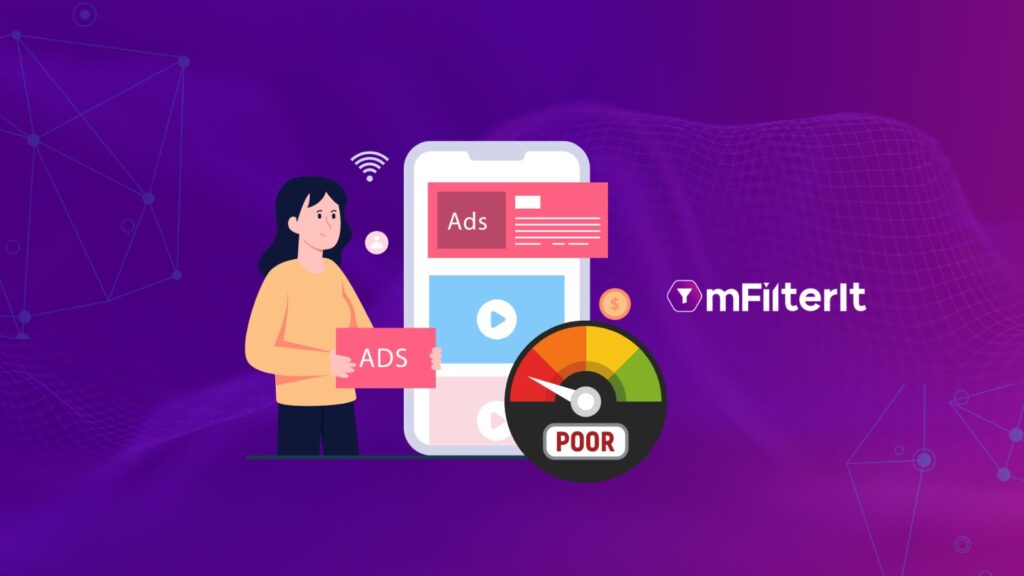Competitors or affiliates may bid on your brand keywords, potentially driving up costs and diluting your brand’s presence. A comprehensive affiliate monitoring tool needs to be in place to safeguard your affiliate marketing spend and protect your brand reputation. Identify affiliate and competition bidding on your brand keywords along with whitespaces across locations for own and competition keywords.
Brand bidding fraud costs approx. $1.3 billion each year as competitors bid on branded keywords. Over 60% of brand terms are targeted by competitors, inflating cost-per-click (CPC) by up to 30% and reducing conversion rates by 5-10%. This not only drives up advertising costs but also dilutes brand recognition, as 50% of users may click on a competitor’s ad when searching for a brand name. This leads to confusion and lost customers.
Businesses must actively monitor and optimize their paid search campaigns while implementing robust brand safety solutions to mitigate these risks.
Table of Contents
ToggleWhat is Brand Bidding?
Brand bidding refers to a practice that falls under paid search marketing. It’s a digital marketing strategy where brands bid on their own brand keywords in search engine advertising platforms like Google Ads and when someone searches for your brand name, your company’s sponsored listing is more likely to appear at the top of the search results page.
But this turns into a brand reputation threat and leads when aggressive affiliate bids, potentially aiming to capture traffic and drive sales through affiliate programs or competition bids on your brand keywords.
Why is affiliate monitoring needed for Advertisers?
Affiliate monitoring ensures the integrity of campaigns, protects brand reputation, and optimizes performance.
Concerns in Brand Bidding:
- Campaign Integrity: Monitoring affiliate activities ensures that campaigns are running as intended. It helps to identify if affiliates are engaging in practices like brand bidding, misleading advertising, or promoting the brand inappropriately.
- Protecting Brand Reputation: When affiliates are bidding on brand-specific keywords (e.g., your company’s name or a competitor’s), it can confuse customers or misdirect them to other sites. Without monitoring, there’s a risk that your brand reputation could be damaged if affiliates don’t align with your brand values or make misleading claims.
- Optimizing Performance: By closely tracking affiliate performance, advertisers can identify high-performing affiliates and cut out low-performing ones. This ensures that advertising spend is allocated effectively, improving overall return on investment (ROI).
- Organic poaching: A major concern that brands should be careful about. It occurs when affiliates or competitors bid on a brand’s keywords, capturing traffic that would have naturally come to the brand’s website. This misappropriates organic leads and increases costs as the brand must pay commissions to affiliates for traffic that would have come organically.
- Ensures unauthorized affiliates are not bidding on brand keywords or misdirecting customers. Prevent unnecessary commissions and preserve your organic search efforts.
- Prevent affiliates from hijacking brand visibility, ensuring the brand stays front and center for potential customers without competitors benefiting from organic traffic.
- Stopping organic poaching ensures that their customers are consistently directed to the brand, which enhances trust and customer loyalty.
Case Study 1: Brand Bidding for a Popular Shoe Brand
Problem statement: Brand was facing challenges in ensuring effectiveness of keyword the brand bidding on across multiple geographies and wants to identify competitor bidding on their brand keyword.
mFilterIt Solution:
mFilterIt analysis and insights into the effectiveness of brand bidding, we conducted a comprehensive analysis of a well-known shoe brand across major Indian cities.
We meticulously monitored 35 keywords related to the brand, including brand keyword variations across 35 cities. This allowed us to understand the search queries users were employing to find the brand.
The brand garnered a significant search volume across time slots. This indicated strong interest in and demand for the brand.
A substantial 50% of the total searches were Google Ads for the brand’s keywords. This demonstrated the competitive landscape and the efforts of various entities to capture search traffic.
We identified 28% were competitors count which were actively bidding on the brand’s keywords. This highlighted the intense competition for visibility and market share.
22% of the total came from affiliates and coupon websites who were also bidding on the bidding keywords. This revealed that affiliates were also using brand keywords and running ads.
mFilterIt Impact
Here are some key observation and Findings:
- Organic Poaching by aggressive Affiliate Bidding: Affiliates & coupon websites were particularly active in bidding on brand keywords, potentially aiming to capture traffic and drive sales. They were capturing organic users. This is called organic poaching. The brand was having to pay commissions to affiliates where the customer would have come organically.
- Competition on Brand Keywords: Competitors were actively bidding on the brand’s keywords, which meant that competition keyword strategies needed to be built within the marketing approach.
AI based Optimization in Brand Bidding with mFilterIt LOCOKS
LOCOKS (Location & Campaign Optimization Keyword Strategy) with AI-ML powered automation of brand bidding process can make identifying and bidding on brand keyword more efficient and controlled. It also prevents overspending on keyword bidding and can schedule when to start or stop the bidding and limit the budget spent for a particular time slot.
- Geo Based Tracking: Our tracker runs in different cities and analyses the different sources of traffic related to a set of keywords coming from various sources
- Intelligent Reporting: Identify when competitors invest more or less and on which keyword. Discover key periods when keyword competition increases or decreases and take action on the findings
- Time Based Tracking: Tracks on-the-basis of day – parting, hourly tracking, ad scheduling strategies of competitors and affiliates
- Seasonal Sales/ Discounts: As most frauds occur during the flash sales such as Black Friday, Prime day etc., we track the user journey to check the source.
Case Study 2: mFilterIt LOCOKS Solution for Optimizing Competition Keywords and Brand Visibility
Problem Statement: An advertiser was struggling with white spaces in their campaign where both competition keywords and brand keywords were not targeted. They wanted to identify such whitespaces and explore new opportunities. Here with take up the sample of 8 cities in 24 hours on 28 competition keywords and 20 own-brand keywords.
mFilterIt LOCOKS Solution:
LOCOKS (Location & Campaign Optimization Keyword Strategy) was implemented to optimize the bidding strategy and eliminate white spaces on competition and brand keywords. It included:
- White Space Detection: Identifying white spaces on competition keywords across multiple locations/cities, where the competition wasn’t bidding on their own keywords.
- Brand Keyword Gaps: Identify white spaces where the client wasn’t bidding on their own brand keywords.
On Competition Keywords:
White Spaces across 8 cities and on 28 keywords in 24 hours

Approx. 54% of white spaces exist where Advertiser’s competition is not bidding on their own keywords. By bidding on competition keywords, ADVERTISER can get enhanced visibility, increased click-through rate and more potential customers
On Own Keywords:
White Spaces across 8 cities and on 20 keywords in 24 hours

Approximately 42% of white spaces exist where the advertiser is not bidding on their own keywords. By bidding on brand keywords, ADVERTISER can enhance visibility, increase brand loyalty and enhance market share.
Rule engine of mFilterIt LOCOKS provides:
- Flexibility to choose the competitor’s keywords
- Modify the rules according to the Ad ranking of the competitor.
- Ad creatives can be specified and run from time to time
- Customize your campaign for specific locations and geographies which can be included or excluded
Impact of mfilterIt LOCOKS for brand bidding
In Location & Campaign Optimization Keyword Strategy (LOCOKS), bidding on competition keywords empowers Advertisers to maximize their brand visibility, increase customer engagement, and potentially drive business growth. This is also valid for your brand Keywords.
It tracks usage and flow of competition keywords in various cities, at different times of the day. Monitor to check the usage of competition keywords, analyze keywords for duplicity and flag-off fraudulent activities. It also looks for seasonal sales and tracks market trends.
- Campaign Optimization: Optimize your campaign according to the competitor’s keyword and location.
- Strategic Campaign Planning: It allows the Advertiser to stay ahead of their competition, maintain their brand visibility and potentially attract customers who may have otherwise chosen your competitors.
- Cost Effective: The location-based inclusion and exclusion mechanism reduces the overall campaign cost
- Enhanced Market Share: By leveraging competition keywords, Advertiser can potentially gain a larger share of the market.
Conclusion
Affiliate monitoring with location and campaign optimization keyword strategy help advertisers make their campaigns more effective with geo-based tracking, time-based tracking, seasonal sales and discounts base bidding, and intelligent reporting. Our affiliate monitoring tool, mFilterIt EffCent extends it capabilities to automate the brand bidding process along with identifying white spaces across locations to make your affiliate marketing efforts more effective and efficient across the digital advertising ecosystem.
Get in touch to learn more about affiliate monitoring.







